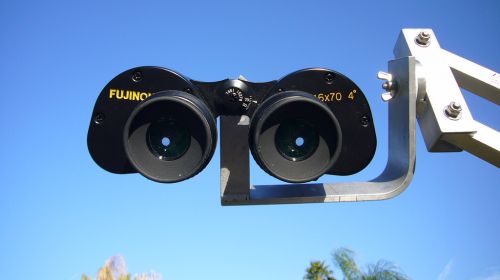
On July 30, the Privacy Commissioner of British Columbia announced a review of license plate scanning programs by law enforcement in the province. If the United States had an analogous institution embodying /enforcing our privacy values, maybe we’d see something like that here instead of untrammeled expansion and retention of license data. We’re still waiting for the “missing in action” Privacy and Civil Liberties Oversight Board (PCLOB) to turn into something real. From 2007 until late 2011, neither President Bush nor President Obama even nominated anyone to fill the independent oversight board; we finally now have four members—but still no chair.
The TSA said yesterday that some behavioral profiling workers would be retrained, after workers told the ACLU and the New York Times that racial profiling was common and a direct result of pressure from TSA management to meet quotas. We’ve been saying that “behavioral profiling” was likely to devolve into racial profiling for at least ten years. Defenders said it wasn’t so, but we were less than impressed when one of our own attorneys walking through Logan Airport in 2003 was singled out for no apparent reason other than his appearance by state troopers implementing a behavioral profiling system there. (The ACLU of Massachusetts filed suit on his behalf in 2004, and a jury found that he had been unlawfully detained.) Later, in 2011, reports emerged that racial profiling was rife among some behavioral screeners at airports in New Jersey and Hawaii. How many times will we have to be proven right on this before we’re . . . proven right?
Also on the TSA front, the agency announced late last month that its Pre Check passenger whitelist program had reached two million enrollees. No word on how many people have been rejected from the program.
On the unmanned aviation front, the Harvard Law & Policy Review has an interesting interview with Mickey Osterreicher, general counsel of the National Press Photographers Association (NPPA) on the use of drones in news collection, and some of the legal issues that is likely to raise as we move into the future. Such uses raise many interesting questions. As we said in our December drones report, technologies like drones may increase government surveillance, but they can also help citizens monitor and check government activities. What we don’t want to see is a world where the police use drones to monitor the public, but the public can’t use drone photography to monitor the police, or other government actors.
Finally, let me echo my colleague Josh Bell in recommending that you take a look at a video about the NSA created by documentary filmmaker Laura Poitras and posted on the New York Times. A couple years ago I pointed out that the “decentralized, out-of-control freedom” of the internet “could not be more at odds with the traditional, military, bureaucratic, control-everything security mindset” that the US security establishment seems to exemplify. NSA Director Keith Alexander seemed to work hard to confirm my accusation in his speech at DefCon this year, as Tom Simonite of Technology Review describes. Alexander complained about decentralization, recommended ways of limiting it, and stressed the need for NSA checkpoints on the internet, which he compared to electronic highway toll booths. That seems to boil down to an attitude of, “if freedom brings risks, then limit freedom.”



